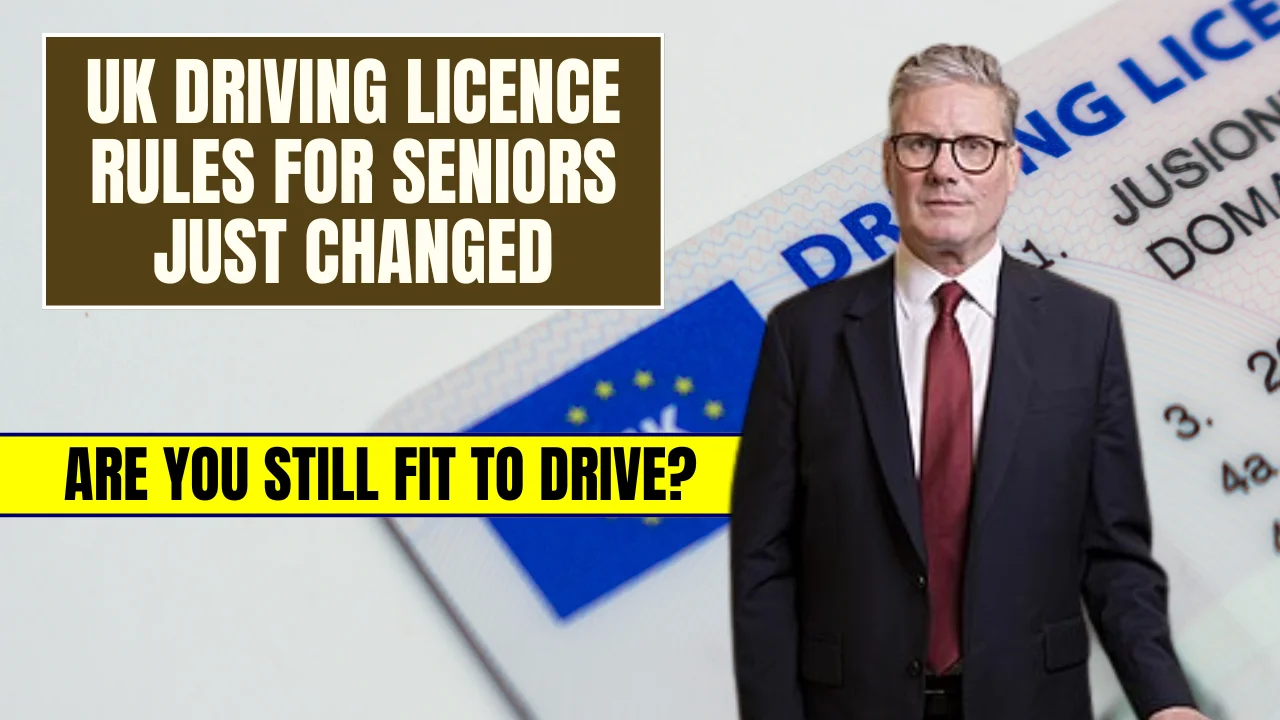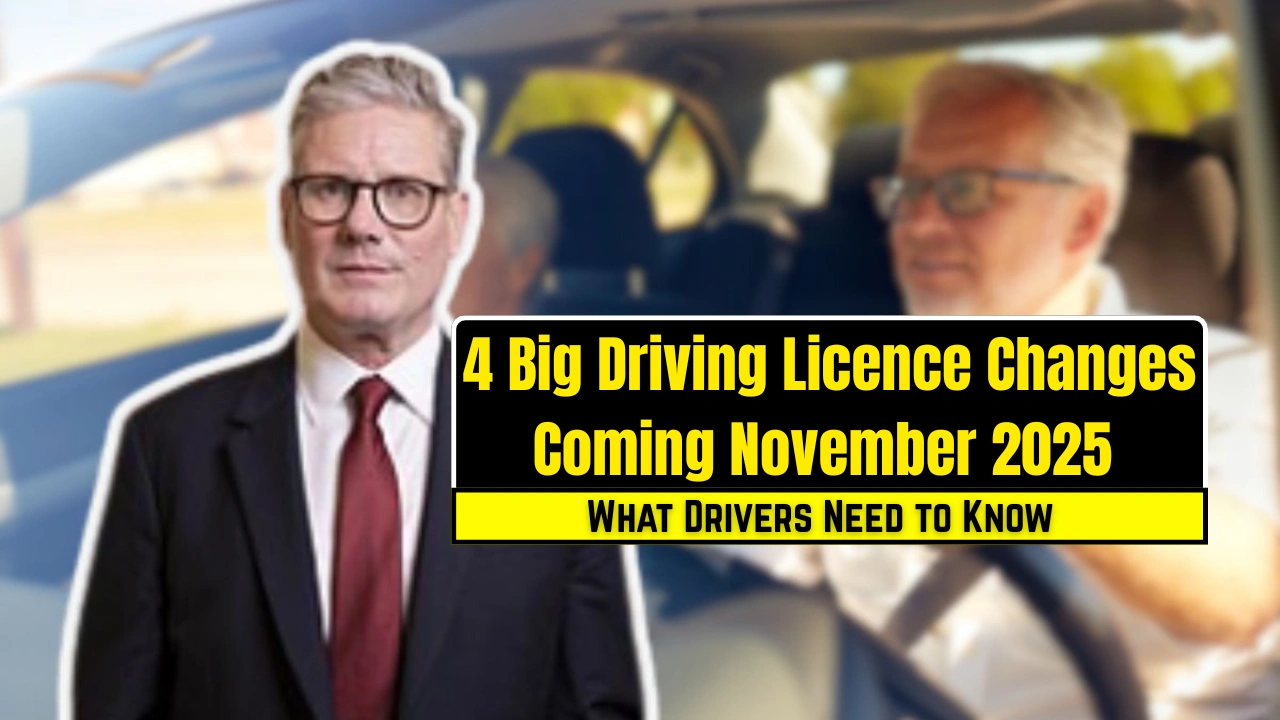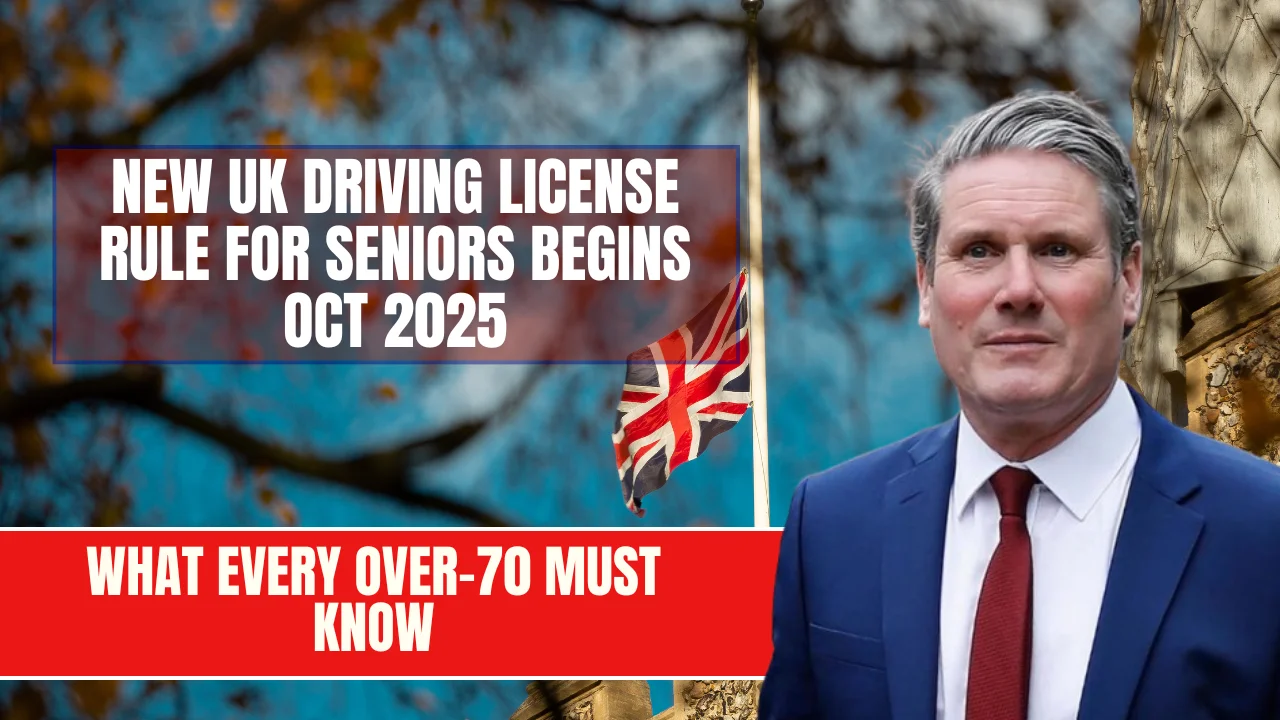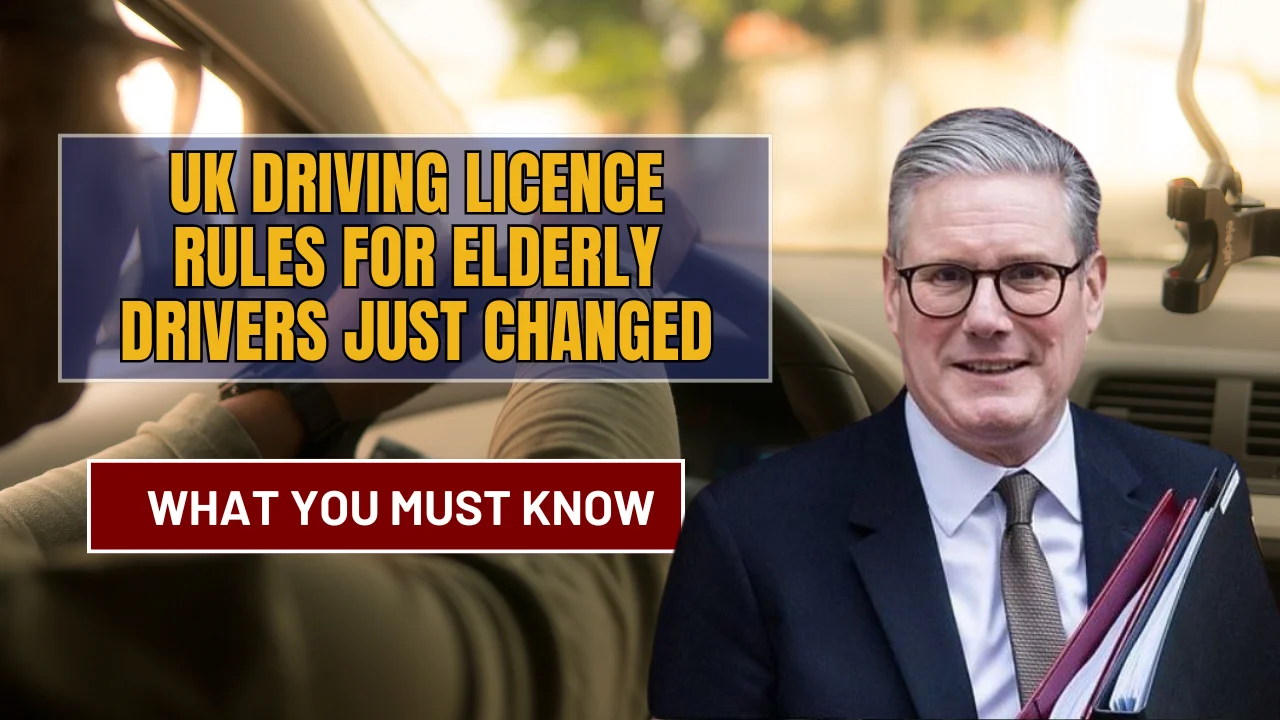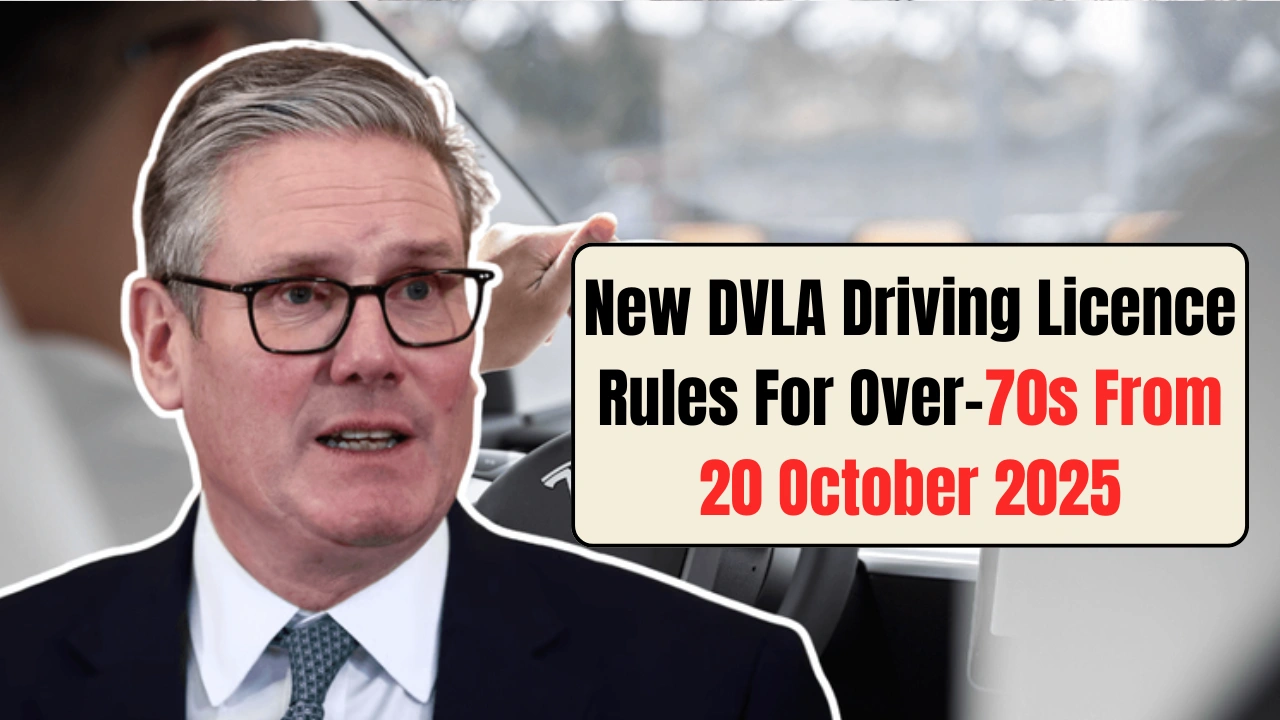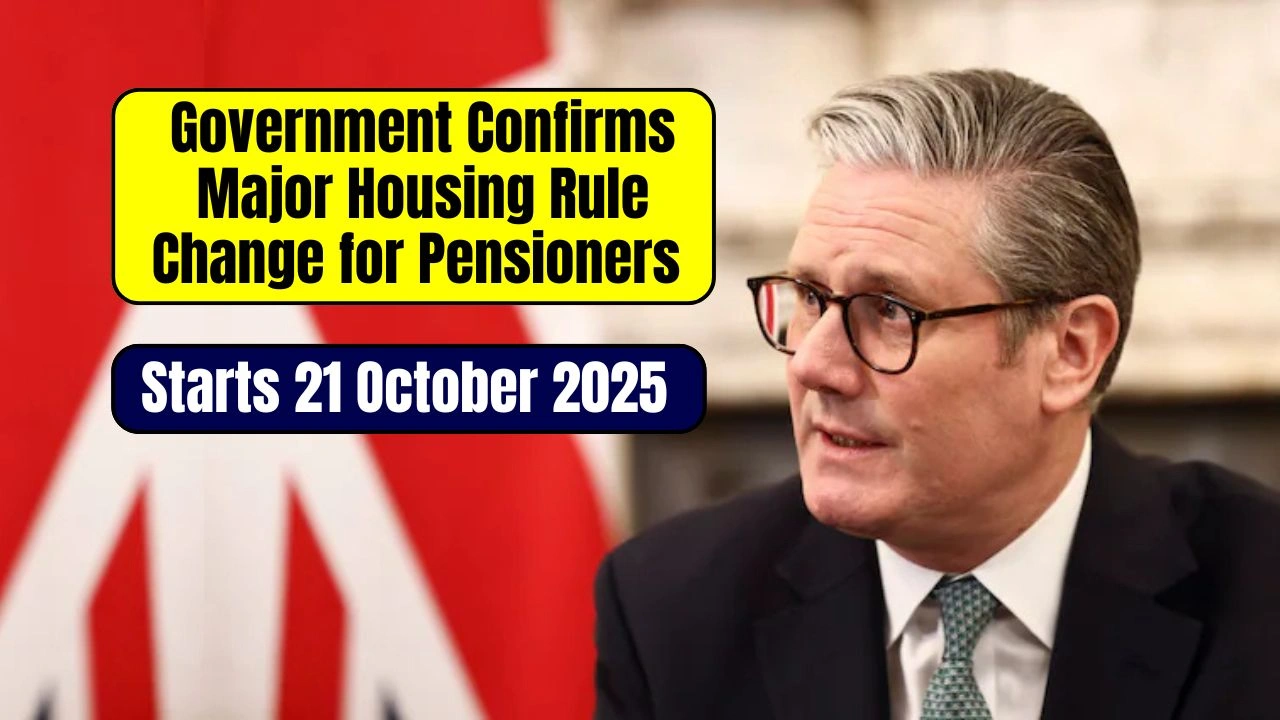UK Driving Licence Rules for Seniors: If you are over 70 and still behind the wheel, you may want to pay close attention. The UK Driving Licence Rules for Seniors have just been reviewed, and there are some big changes on the horizon. The government, along with the DVLA, is introducing a major update to driving licence regulations starting in 2025. For senior drivers, this could mean less frequent licence renewals, tighter health checks, and a smoother transition into the digital era of driving.
Whether you are still actively driving or planning to renew soon, understanding the UK Driving Licence Rules for Seniors will help you stay legal, safe, and confident on the road. From proposed changes to the renewal age to updated medical assessments and digital licences, this article covers what every senior motorist in the UK needs to know before these rules take effect.
UK Driving Licence Rules for Seniors
The proposed changes to the UK Driving Licence Rules for Seniors aim to strike a balance between public safety and personal freedom. Currently, senior drivers must renew their licence every three years once they turn 70. Under the new guidelines set for 2025, the renewal period could be extended to five years, raising the age requirement to 75. This update reflects the fact that people are living healthier and longer lives, and many seniors continue to drive safely well into their seventies. However, the extension will depend on a self-certified online health and vision check. This ensures drivers are still fit to drive without creating unnecessary obstacles for those who are.
Overview Table: UK Driving Licence Rules for Seniors
| Category | Details |
| Current Renewal Age | 70 years |
| Proposed Renewal Age | 75 years |
| Health Check Requirement | Online self-assessment for vision and medical fitness |
| Rule Implementation | Starting in 2025 |
| Primary Goal | Reflect longer life expectancy and better health |
| Licence Format | Shift to digital driving licences |
| Medical Disclosure Updates | Expanded list of reportable health conditions |
| Penalty for Non-Disclosure | Fines up to £1,000 or possible suspension |
| Paperless Transition | Digital-first notifications and renewals |
| Impact on Seniors | Less frequent renewals if health checks are passed |
Why the DVLA Is Updating Licence Rules
The DVLA’s new rules are part of a much broader reform to modernise driving regulations in the UK. With a growing population of older drivers, it was time to review the current system. These changes are not only aimed at improving safety but also at making processes faster and more efficient. The move to digital driving licences, automated health checks, and a simplified renewal system is meant to keep older drivers on the road safely while reducing paperwork and delays. The DVLA also wants to make the system more accessible, especially for those who may not be able to travel for in-person renewals.
Digital Driving Licences to Replace Photocards
One of the biggest shifts coming in 2025 is the introduction of digital driving licences. These licences will be accessible through a secure government app, letting drivers show proof of their driving status directly from their smartphones. Physical photocards will still be accepted for a while, but the goal is to make the digital version the default. This change is especially beneficial for seniors, who may find it easier to update and renew their licence from home, without relying on postal services or long wait times.
Benefits of Going Digital
Digital driving licences will allow for instant updates when you change your name, address, or even your photo. Seniors will benefit from faster renewals, fewer chances of losing important documents, and easy access to licence information in case of an emergency. Digital licences will also integrate with services like car insurance and vehicle rental companies, making the entire process of driving smoother and more secure.
Tighter Security and Identity Verification
To prevent fraud and identity misuse, the DVLA is introducing tighter ID checks. Starting in 2025, all new and renewal applications will require enhanced verification. This includes real-time facial recognition during online applications and automated cross-checking with passport and immigration records. While this might seem like an extra step, it provides an added layer of security for senior drivers, ensuring that their personal details are safe and that no one can misuse their identity to obtain a licence.
Updated Medical Reporting Rules
Senior drivers should be aware of the stricter medical disclosure rules also being rolled out. If you have a condition that affects concentration or alertness, such as diabetes, sleep apnea, epilepsy, or certain mental health disorders, you must report it to the DVLA. Starting in 2025, this requirement becomes even more important. The penalty for failing to disclose a reportable condition could be a fine of up to £1,000 or even a suspension of your licence. Medical data will be processed through NHS digital systems, making it faster and more accurate.
New Licence Categories for Electric Vehicles (EVs)
As electric vehicles become more common across the UK, the DVLA is adjusting licence categories to better reflect the needs of drivers. Some larger electric vehicles, particularly vans with heavy batteries, may require a new licence category. Currently, they fall under Category B, but this might change with new subcategories like Category B+E. For seniors who drive for business or own large electric vehicles, this is something to watch closely in the coming months.
Learner Drivers to Face Stricter Testing Standards
While most of the reforms focus on existing drivers, learner drivers are not being left out. Starting in 2025, driving tests will be updated to include more real-world scenarios. This includes night driving, motorway practice, and the use of electric vehicles. The DVSA will also introduce a digital learner logbook, which tracks a student’s progress and prevents fraudulent test bookings. While this may not affect seniors directly, it contributes to overall road safety, which benefits all drivers.
Renewal Rules for Older Drivers
Under the current rules, seniors must renew their driving licence every three years once they turn 70. The proposed change to extend that to 75 is seen as a way to reduce unnecessary paperwork for healthy drivers. The new rule will require a simple online vision and health check to ensure the driver is still fit. If passed, the licence will be renewed for another five years. Those who have medical issues may still need to follow the current three-year renewal cycle, depending on the condition.
Easier Conversion for Foreign Licences
For older drivers returning to the UK or moving here from abroad, the DVLA is making it easier to switch from a foreign licence to a UK one. Starting in 2025, more countries will be included in reciprocal agreements, including India, Australia, Canada, and New Zealand. This means fewer tests, faster approvals, and less paperwork. Digital verification will make it easier to confirm a driver’s history and qualifications from another country.
Harsher Penalties for Licence Fraud and Offences
Licence fraud is a growing concern, and the DVLA is taking it seriously. From 2025, drivers who lie on applications or fail to disclose medical issues could face larger fines, potential prosecution, or even jail time in extreme cases. All penalty points and disqualifications will now be tracked in real-time through the new digital system. For senior drivers, this transparency helps ensure that their driving record remains clean and protected from misuse.
Cutting Down on Paper Waste
In line with the UK’s environmental goals, the DVLA is aiming to reduce paper usage across all services. Licence renewals, reminders, and confirmation notices will mostly be sent via email or mobile notifications. Paper options will still be available for those who prefer them, but the push will be toward digital communication. For senior drivers, this means adjusting to new methods of receiving important updates, though help will be available for those who need it.
What Drivers Should Do Before 2025
To stay ahead of these changes, it is a good idea to log in to your DVLA account and make sure your information is up to date. Seniors should especially check their medical records, set up access to digital services, and prepare for any required health assessments. Once the digital licence app is launched, download it and activate your profile. Keeping up with DVLA updates will ensure you are ready for all the 2025 changes.
FAQs
The DVLA is proposing to increase the renewal age from 70 to 75, starting in 2025, with an online health and vision check required.
Yes, physical photocards will remain valid during the transition, but digital licences will become the default option moving forward.
Yes, conditions like diabetes, epilepsy, and sleep apnea must be reported. Failure to do so can result in fines or suspension.
Yes, but the DVLA encourages digital communication. You can opt in for paper if preferred through your DVLA account settings.
The updates mean less frequent renewals for healthy drivers, easier digital access, and a stronger focus on safe driving for seniors.
